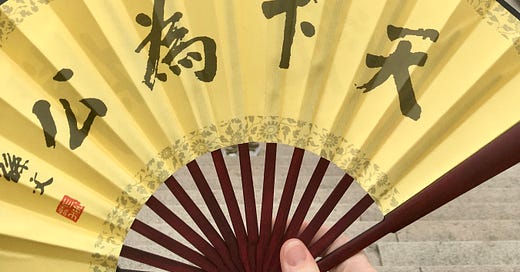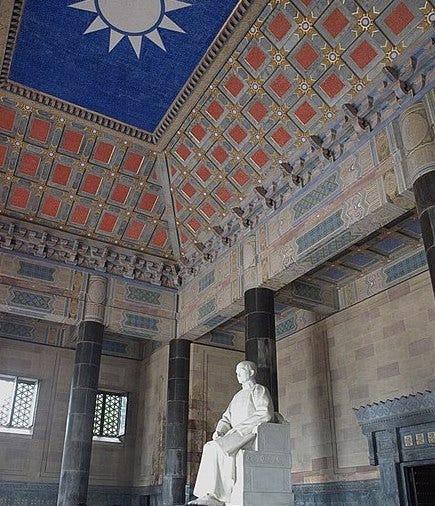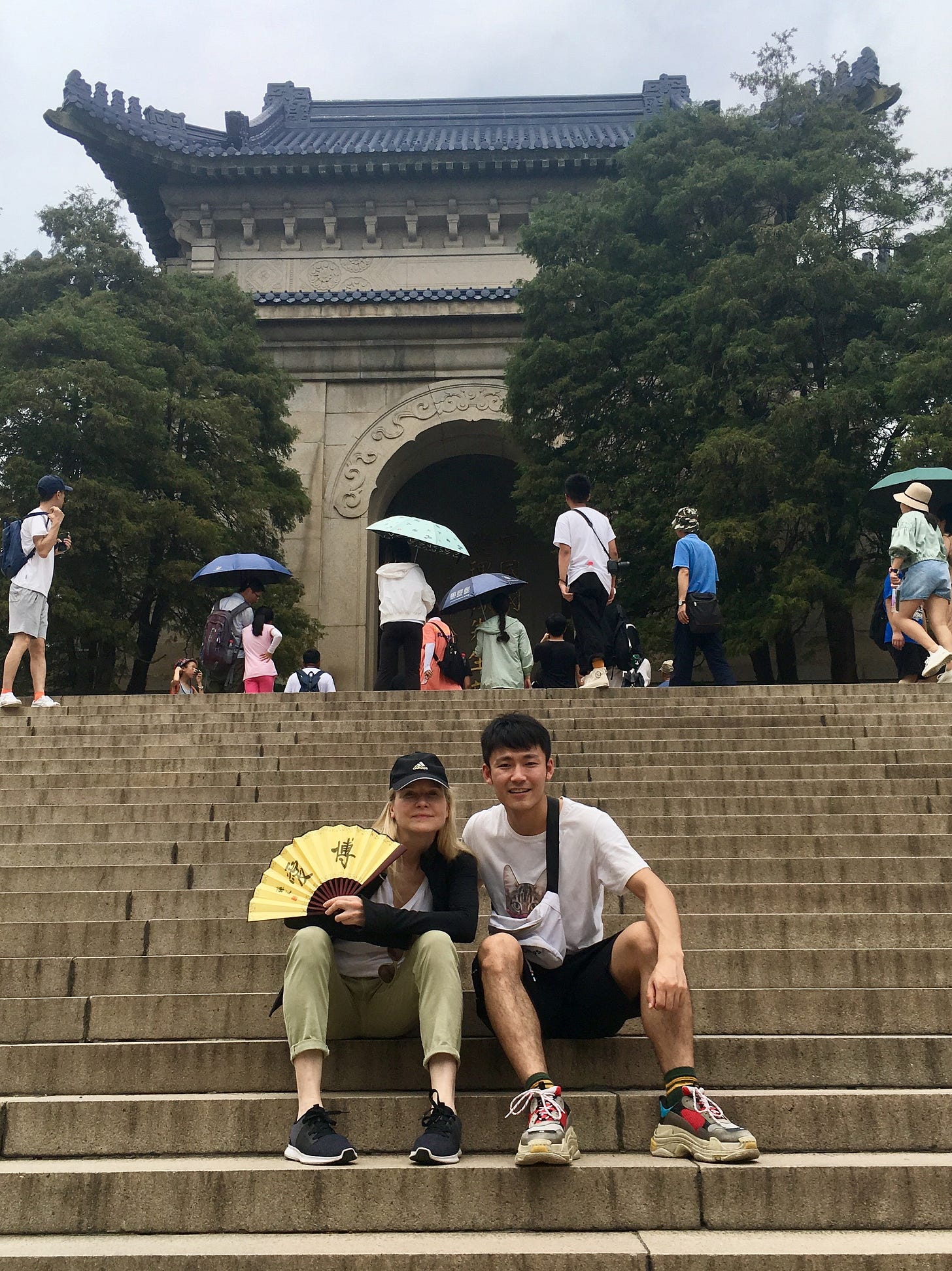Words are powerful.
In 2019, while I was filming the TV series ‘The Chinese Dream’ 梦在海这边 in Nanjing a friend and I had a day off. He suggested that we visit Sun Zhongshan 孙中山 mausoleum. I knew that there was a memorial hall in Taipei, but didn’t know that one existed on the mainland as well.
We booked a Didi and in half an hour were at the foot of Purple Mountain at the base of a 392 step journey to the top.
This stairway of 392 steps is broken up into eight platforms. The 392 stairs represent the population of China at the time, estimated to be 392 million, and the eight platforms stand for Sun Zhong Shan’s Three Principles of the People and the five branches of the Chinese government, both ideas inspired by his political theory. At the top is the memorial chamber and crypt. It took three years from 1926-1929 to build this impressive site.
Sun Zhongshan 孙中山 in Cantonese is Sun Yat Sen and most people would know that name for a man honored as the “Father of Modern China”.
Sun is unique among 20th-century Chinese leaders for being widely revered by both the CPC on the mainland and by the government in Taiwan.
I always associated Sun Yat Sen with Taiwan, knew about his time in Hong Kong studying at HKU, but on this visit in Nanjing my eyes were opened and I learned more about how the groundwork for modern China was layed.
My friend explained as we stopped up the long stairway.
Sun is considered to be “Forerunner of Democratic Revolution” in the People’s Republic of China. He played a crucial role in the years leading up to the Xinhai Revolution (辛亥革命) which overthrew of the Qing Dynasty (1644~1912) and over 2000 years of feudal monarchies. The Xinhai Revolution is also know as the Chinese Revolution of 1911 when a group of revolutionaries in southern China led a successful revolt against the Qing Dynasty, establishing in its place the Republic of China and ending the imperial system.
The 1911 revolution was only the first step in a process that would require the 1949 Revolution to complete. The new government established its seat in Nanjing and although successful with the overthrow of the Qing, it failed to unify the entire country. Sun was one of Mao Zedong’s first political heroes and by some is remembered as a “bourgeois revolutionary” who helped set the stage for the Communist Revolution.
Sun was appointed to serve as Provisional President of the Republic of China when it was founded in 1912 and he later co-founded Kuomingtang and served as its first leader. His political life was with constant struggle and frequent exile, but he always supported the revolutionary party and uprising in China.
There is much more to the complex history of this time period of revolution, best left for another post.
Let’s focus on words.
Sun’s main legacy resides in his development of the political philosophy known as “Three Principles of the People” - Nationalism (民族), People’s Rights (民权) and People’s Livelihood (民生).
My friend pointed out these three words that are seen on three of the arches of the entry to the main hall (interior pictured above).
The Principle of Nationalism (民族主义 Mínzúzhǔyì) means independence from imperialist domination. To achieve this Sun believed that China must develop a “China-nationalism” to unite all of the different ethnicities of China in the face of imperialist aggression.
The Principle of People’s Rights (民权主义 Mínquánzhǔyì) is translated as “democracy”, literally “People’s power” or “government by the people”.
The Principle of People’s Livelihood (民生主义 Mínshēngzhǔyì) may be understood as social welfare or communitarianism, which emphasizes the connection between the individual and the community.
Above these three arched doorways is another inscription - “Tian Di Zheng Qi” (天地正气) which means uprightness in heaven and earth.
It was a hot day, so I picked up a fan halfway up.
The fan has his most well known phrase on it The World is For All 天下为公 (tiān xià wèi gōng), which literally translates to ‘everything under heaven is for the public"‘. For me this phrase has a sense of equality to it.
On the other side of the fan, it says 博爱 bó'ài which means “universal love” and these characters are first seen right at the beginning entrance archway.
Sun Yat Sen’s legacy lives through his words and actions.
I still have this fan hanging on the wall. Every time I glance at it, I am reminded of the principles Sun laid out.
Nationalism, people’s rights, people’s livelihood and community, held upright in heaven and earth, with universal love and understanding that everything under the sky is for all people.
Words are powerful.
These words form core principles that guide the character of a unified people.
View China Travel Guide info on the memorial hall HERE
Read opinion article “The Chinese Communist Party Has Followed Sun Yat-sen’s Road Map” HERE







